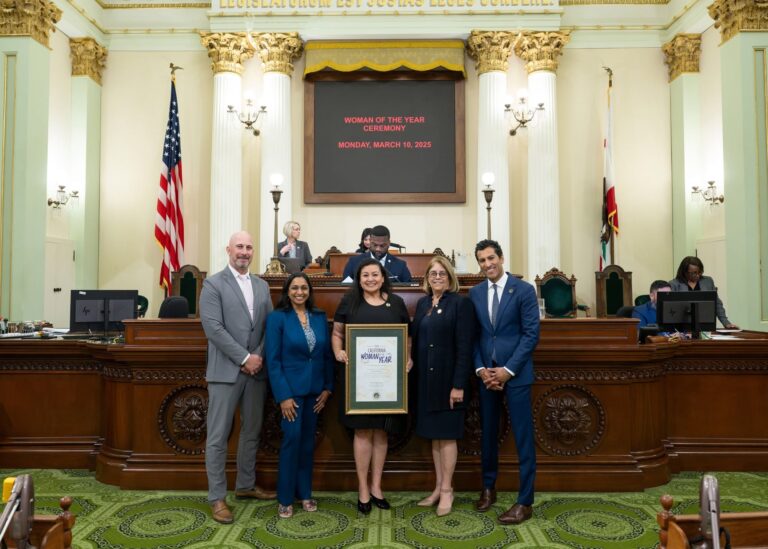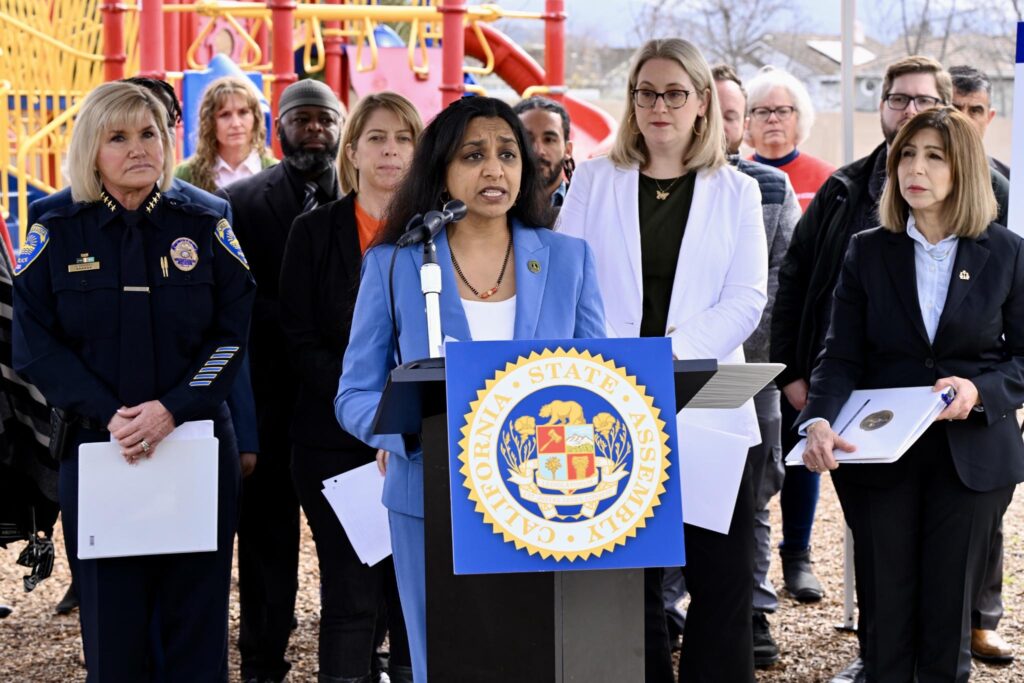
Dr. Darshana Patel is a member of the California State Assembly and previously served as an elected member of the Poway Unified Board of Education. Prior to her career in public service, Dr. Patel earned a Ph.D. in Biophysics at the University of California, Irvine and worked as a professional biotechnology researcher. ESAL interviewed Dr. Patel about her experience transitioning from a career in scientific research to local government.
This interview has been edited for clarity and length.
SvD: What led you to a career in public service?
Patel: My experiences have taught me that you can try to create a path for yourself, but sometimes life takes you in different directions.
At 14 years old, I lost my mom to an undiagnosed medical condition, compelling me to look for cures to diseases. By this young age I knew I wanted to work in drug discovery to help people and contribute to society. Along the way, I also took any chance I got to join school organizations to make systemic change. In graduate school, for example, I joined the graduate student council. This is where I learned about the challenges in labor and the workforce, and what it means to have solidarity in a movement. Then, in my first biotech job at Genentech, I served as president of the South Asian Network. In that role, I witnessed the barriers to career progression that many people in that system face. I advocated for many initiatives to help break down these barriers, such as establishing more nursing rooms to allow women to return to the workforce. So, while my core interest was bringing drugs to market, I was also learning how systems worked and how to improve them. When my father passed away in 2009 while waiting for a prior authorization from Medicare, I decided that there is a bigger system that I can try to fix.
SvD: How are you leveraging your previous experience as a research scientist in your elected position?

Patel: I am brand new to the State Assembly, but learning a lot as I go along. There is a huge gap in communication between scientists and policymakers. We have completely different cultures, ways of thinking, and even different time ranges: a scientist thinks in generations, a policymaker thinks in sessions. I've noticed that, in the spaces I'm in, people treat elected officials at this level with a lot of deference. People say “oh, she's a biophysicist, she's the smartest one in the room”. This gives me an opportunity to lead the discussion, ask the questions, and show the data that supports that opinion, which helps bring rigor to the process. I think we need that – our constituents are asking us to be more rigorous with our decisions.
I have a goal to seek common ground with all of my colleagues. Everyone wants a good quality education, good health care, safe water to drink, and clean air to breathe. Each of these are areas where a scientific process, scientific understanding, and respect for science will help. How do we deliver public education to the most people at the least cost? We need experts to come in and weigh in on what that looks like. We need to develop this universal scientific mindset to approaching problems. Everyone doesn't need to be a scientist, but I think the mindset will help us deliver on the promises that we've made to our people.
So, we need to bring more rational thought into our policymaking, but how do we do that? How do we talk in scientific terms without sounding elitist? We must approach policy making like a study: you predict an end point, a hypothesis, but when things do not go the way you expect them to, you reevaluate and change the variables to see the outcome that you want to see. Ultimately, we should never be attached to a specific policy, we should be driven by the desired outcome, and if we're not getting the desired outcome, then we need to change what we are doing. And I would love to see a policy mindset where we are doing that: not just creating new laws, but revisiting old laws. Are they outdated? Do they still apply in today's context? Does it make sense? Does it conflict with other existing laws or values that we have now in today's world? We need to constantly revisit, and that is okay if we bring a scientific process to it.
SvD: What specific issues do you hope to tackle in your position in the State Assembly?
Patel: We are currently working toward a bill to close a loophole around school gun violence threats, an issue whose importance has been expressed by our community. We had an elementary school where a man sent several emails threatening to open fire there. The police got word of it, did their investigations, filed for a temporary gun violence restraining order, and seized his weapons. They did all the right things. The DA then came in, built a case, and were ready to prosecute, however, it turns out that this did not meet the standard for prosecuting under the existing law. The man had made credible threats against a specific school, but did not name an individual at the school, which did not meet the threshold of specificity to prosecute under the existing legal code. So, we are proposing that if they name that place, that is specific enough.
This is just one example of the ways we are directing our efforts based on the needs of our constituents. Several other items include reforming the way special education is funded in the state of California, youth mental health, access to healthcare and housing, the cost of utilities, and more. These concerns are brought to us through calls, emails, submissions on our website, meetings at our public office, and events we attend or host ourselves. I would also love to work with community leaders – I am looking to form community advisory committees in the certain areas of my policy interest.
SvD: What advice do you have for people in STEM who want to engage with their local government?
Patel: There are a lot of opportunities to engage, but they are not obvious to people in this [STEM] world.
You need to look for them, reach out to people like me, and keep in mind that these opportunities are there. We also need to work to change the culture of academia, which often views working in the policy space as being a sellout. We need to walk away from this sellout kind of mindset and start encouraging people to take this training and go out into other spaces. When we learn these skills, we can make legislators better understand and appreciate the value of scientific research and develop better societies in the long term.
Do you have a story to tell about your own local engagement or of someone you know? Please submit your idea here , and we will help you develop and share your story for our series.